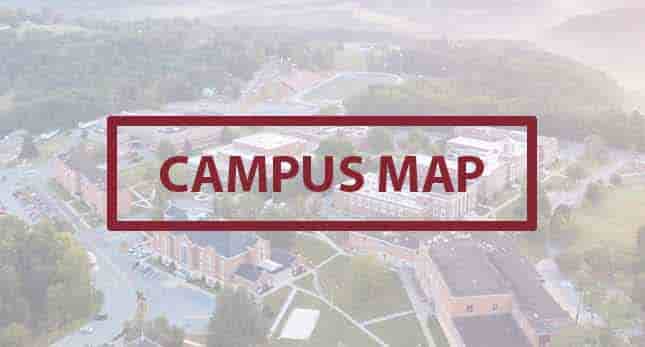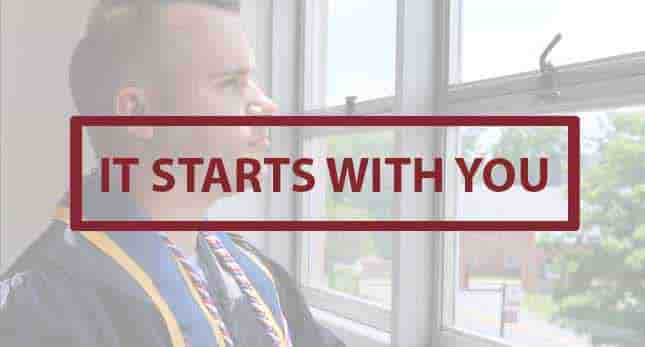The U.S. Department of Education has required that institutions ensure financial aid funds are used to pay for courses that apply to a student’s degree program. The technology has not been available to provide an automated way to check each student’s schedule each term until recently. The bigger picture is this not only pertains to financial aid, but rather to ensuring that students are enrolled in the correct classes needed to graduate. It is our hope that this will ensure students are progressing towards completion of their degree. Course program of study (CPoS) refers to all courses needed to earn your degree. It comprises all coursework, including electives, necessary to complete the primary degree, certificate, or other recognized credential. For undergraduate degrees, the CPoS normally includes general education + University requirements + major requirements + required electives. Only courses that count toward your program of study can be considered when determining aid eligibility for federal and state financial aid programs. Courses must be required for a student’s degree completion in order for those courses to count toward their enrollment status requirements for Title IV federal aid and WV state aid. Electives must satisfy a requirement of the student’s declared major to be eligible for Title IV federal grants or WV state aid. Required electives are courses not necessarily related to the major but are necessary to reach the minimum credits required by the degree, certificate, or other recognized credential as specified in the CPoS. Required electives are degree-pursuant. Free electives are courses that are not required by the University, the college, or the major and that are not necessary to complete the student’s CPoS. Free electives are not degree pursuant. Courses taken for a dual degree or a second major are degree pursuant. Requirements for either may be combined each semester; however, once a student has completed the requirements for the first degree, they are considered to have earned a degree and are no longer eligible for Title IV federal grants or WV state aid. After such time, they would need to be moved to a second bachelor’s degree-seeker and would only be considered for federal loans. Thus, to continue to receive Title IV federal grants and/or WV state financial aid, students must complete the last requirements for both degrees/majors in the same semester. Minor courses are degree-pursuant if they are taken as required electives in programs or to fulfill the 120 credit hour graduation requirement. After graduating with a first undergraduate degree, students seeking a second undergraduate degree may be eligible to receive Title IV federal student loans. Those students are subject to degree-pursuant coursework requirements each semester as well. The second degree must be a different degree than the one already awarded to the student (BS, BA, BS ED, etc). Honors courses are degree-pursuant if the Honors courses can be applied to the student’s CPoS, or if they are taken as required electives in programs that include required electives. For undergraduate students, a course can be repeated one time and still be degree-pursuant if the student obtained a grade of a C or D. Additional attempts are not degree pursuant. If a student fails or withdraws from a repeated course, they can take that course again until a D or better grade is earned. However, all hours attempted and earned from the courses taken are still computed in the calculation of the completion rate and maximum time frame for Satisfactory Academic Progress for financial aid eligibility. Graduate students may repeat up to two courses in which they earned a grade of C or lower. The decision to repeat a course is made between the student and the advisor and must be approved by the Graduate Program Director to be degree pursuant. Please note, all hours attempted and earned from the courses taken are still computed in the calculation of the completion rate and maximum time frame for Satisfactory Academic Progress for financial aid eligibility. Dual majors/double degrees should be declared early in a student’s education at Concord and must be officially declared and reflected in the degree evaluation prior to the end of their Junior year. If a student changes their major/degree, the CPoS in the new major will be used to determine degree-pursuant coursework. However, the hours attempted and earned for the original major/degree are still computed in the calculation of the completion rate and the maximum time frame for Satisfactory Academic Progress for financial aid eligibility. Students should not add minors or majors that they have no reasonable ability to complete. Seniors wishing to add an additional major may do so only with prior approval of the Provost’s Office. CPoS applies to all Title IV federal grants or WV state aid programs. Below is a list of the aid programs that CPoS could impact: The rules and regulations for institutional aid are not affected by CPoS. This means that CPoS guidelines do not change a student’s eligibility for receiving institutional aid. However, institutional aid has always been held to a student’s total cost of attendance (budget) assigned each academic year. This means that on a very rare occasion, a student who has a total financial aid package that is up to their budget could be impacted if a student takes a course that is not included in their program of study and the cost of attendance has to be adjusted. Preparatory coursework required for enrollment in a graduate or professional program are degree pursuant. Students may be eligible to receive Title IV federal student loans but are not eligible for federal or state grants/scholarships for preparatory coursework. Students must provide the Financial Aid Office with proof from the school of the coursework being required for enrollment into the graduate program of choice.Course Program of Study (CPoS) / Degree – Pursuant Courses
Electives
Dual Degrees and Double Majors
Minors
Note: Once a student is enrolled in enough credits in their program of study to be full-time, they will be eligible for maximum federal and state aid, and can take additional courses whether or not they’re in their program of study. For example, the student may be in 12 degree-pursuant hours (full-time for undergraduates), then take two courses for a minor, putting them at 18 hours of overall enrollment.Second Degree
Honors
Repeated Courses
Major/Degree Change
Financial Aid Impacted
Enrollment Status for Scholarships
Institutional aid does require full-time status unless the student is in their last year/graduating and unable to fulfill a full-time schedule. At which time, the student can complete a Scholarship Exception Form. Scholarships will be prorated based on enrollment.Preparatory Coursework for Graduate School
Course Program of Study/Degree Pursuant CourseworkBayleigh Meadows2024-12-11T14:56:14-05:00


